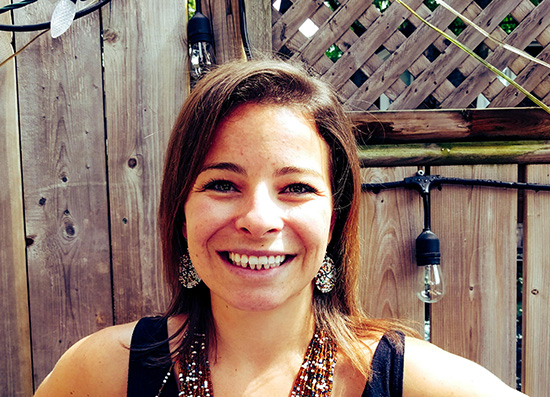
Julie has a background as an educator and problem solver, and she has spent her career empowering change through the development and growth of innovative programs. Her expertise is in operations, project management, program and partnership development, education and knowledge translation. She received her Masters in Education from Griffith University and has worked in private, public and not for profit sectors.
Julie has been working on projects and with programs empowering young people to identify a cause they are passionate about, and work to making a positive change. After spending a year living aboard a tall ship, sailing the Atlantic ocean with a group of students, she developed a personal passion for ocean conservation herself. Weare excited to have her on board as our new operations director.
Q: How did you find your way into marine issues?
Q: Interest in seafood sustainability and traceability has grown in recent years. Why do you think that is?
I also believe that a general awareness regarding the potential global impact of the dwindling fish populations on food security and ocean health in general is becoming a topic of conversation. A more immediate need for the billions of people that rely heavily on seafood as a primary food source, and a general understanding of the role food security plays in sustainable development. While it is difficult to know exactly how many fish there are in the sea, people are experiencing effects of the declining fish populations and therefore the realities of overfishing and the impact on mankind is increasing in urgency.
Q: What were you doing before you joined Future of Fish?
Prior to Future of Fish, I had recently completed a contract launching a new child and youth mental health and substance use program at BC Children’s Hospital. Before taking on that exciting challenge, I worked for the WE Movement, supporting educators in implementing experiential service learning in schools across North America and the UK. My experiences at WE provided me with the opportunity to be inspired through the stories of amazing young people who are taking action complex global issues trying to make a positive change in society. It’s easy as an adult to get caught up in the negative news cycle and lose hope for the state of the planet. Seeing the impacts and momentum coming from young change makers on a daily basis showed me that the world is in excellent hands and that the next generation of voters and adults are caring, compassionate and socially conscious. These young people have inspired me and I am looking forward to being a part of the change through working at Future of Fish.
Q: How do see your previous experience coming into play at Future of Fish?
Q: What most attracted you to working with Future of Fish?
Q: What are you most looking forward to doing in the next year?
On a personal note, I am looking forward to experiencing the culinary industry in Lima, and tasting some amazingly fresh seafood.
Published Jul 26, 2019




